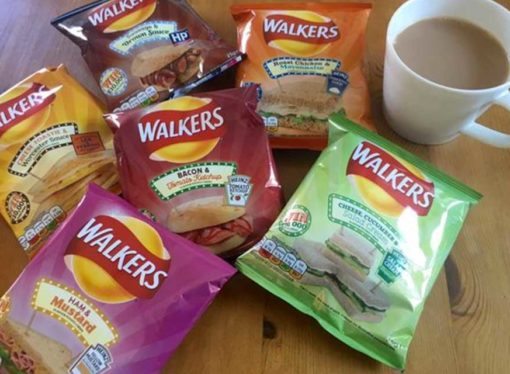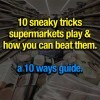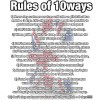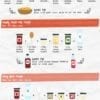Jos Banham, 24 who is studying at UWE (Bristol) manages to eat for pretty much £0 most weeks, we’ve adapted his article from the Tab to give you a mini guide of his tips & tricks + a few of our own.
10ways warning: People in the past have been arrested and charged for doing similar to this, be careful. Ideally, ask for permission and stay safe.
What exactly does he do?
Short answer: Freeganism aka ‘binning’ aka ‘bin diving’ aka finding awesome food that has just been placed in bins by supermarkets etc.
Long Answer:
If your cupboards are barer than Old Mother Hubbard’s and you’re in more debt than Greece I have two words for you: skip diving. If you’ve never heard of skip diving (or “dumpster diving” to our American friends) it’s basically eating out of bins, but in a cool, trendy, hipster way – just make sure you don’t get bin juice in your beard.
Where to look?
If you’re thinking of going skip diving the first thing to do would be to ask around – see if you know anyone who already does it.This will make the whole thing a lot easier.
If you don’t know any current divers, maybe you can convert some – going with a friend is always more fun and less scary for your first time.
“The better shops have better waste, but any free food is good free food”
“Try doing some online research, contact freegan forums or just go and talk to your local hippies.”
Once you have found the best bins, you need to treat them with respect. If you make a mess, security will keep a better eye on them and you will ruin it for other skip divers (who desperately need the food).

Photos from another Bin Diver. She updates her blog with her recent finds.
What do you need?
Once you’ve found your partner in crime (not crime, well kind of crime…) you need to prepare your kit. Mine consists of a rucksack, a few carrier bags and a head torch for hands-free hunting. Don’t only take a rucksack, especially if it’s the one you use for uni – bin juice doesn’t do you any favours when you’re chatting up people in the SU bar.
How not to get caught?
Obviously, it’s better not to go in broad daylight and if you’re climbing fences and ignoring big red warning signs, you’re more likely to get caught and less likely to be let off.
Having someone else being your look out will help keep yourselves safe.
Once you’ve found a decent few spots, do yourself and everyone else a favour and treat it with respect. Don’t empty actual rubbish on the floor while rooting for the edible stuff, don’t make too much noise in the middle of the night and don’t tell too many people about it – some people go skip diving because they want to be cool, other people go because they can’t afford to actually buy food. Don’t ruin it for the people who need it.
How not to die of food poisoning

Jos Banham – Via Tab
- I rarely take meat from the bins and when I do I make sure the best before date was very recent and it smells normal, and then I cook it that night and eat it the next day. So have fun, stay safe and don’t die!
- Stick with non-perishables to being with, unless you’re 100% sure they’ve only just been placed outside in the past 30minutes.
- Use your nose! It’s fairly easy to tell common food that is off, practice at home with food you know is safe and when it starts to turn smell it
- Stick with bakery items such as bread/bagels/baked goods, packaged products (crisps, biscuits etc), boxed juices, canned goods (avoid bulging or dented cans) and fresh fruits and vegetables.
- Cook it well (above 75°C for at least two minutes). You may want to invest in a food thermometer.
- If you’re unsure then don’t risk it



























